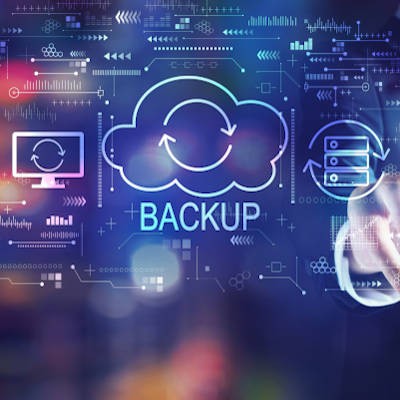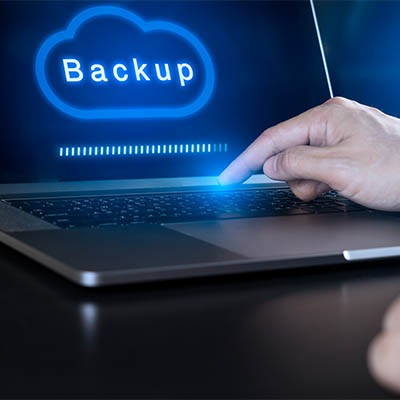People have been examining the COVID-19 pandemic and the resulting economic and social shutdown from every angle. Unfortunately, some of those people took it as the opportunity they’ve been waiting for to try and steal data and in some cases money from unprotected and unprepared people and businesses online. Let’s examine how the events surrounding COVID-19 have had an effect on cybercrime.
Datalyst Blog
Managed services have quickly become the most reasonable option for businesses of any size to use, and based on what we’ve seen recently, will soon be the only real option for most operations. However, when considering the managed service option, you need to make sure you find a provider with the following capabilities and service offerings:
Skipping the commute, wearing comfortable pants, and foregoing everyday office distractions has become the new norm during the COVID-19 pandemic, but it’s very likely that the businesses that do well with a remote workforce might continue to keep operating that way even after we’re all able to see each other again.
If you’re trying to minimize your operating costs to improve your budget, it is important to keep in mind that sacrifice isn’t your only option. Instead, you also have the option of streamlining and minimizing some of your larger expenses by enlisting a managed services provider and the more sustainable business model we adhere to.
Many businesses are currently finding the best course of action for them to take right now for the good of their employees is to adopt remote work policies. However, this puts a lot of responsibility on the employees to conduct themselves appropriately and spend the time they should be working diligently.
With the COVID-19 outbreak forcing businesses into unenviable situations, it’s probably not surprising that business owners and decision makers are looking at what expenses they need to cut in order to keep their businesses afloat. Today, we’ll discuss the trends we are seeing and how managed IT services can be a godsend in situations like this.
Productivity is a concept that has long been viewed as the gold standard in businesses. However, with so many businesses currently transferring to remote operations in the face of the Coronavirus pandemic, it can be challenging for all involved to work as productively as they would while in the office. On the other side of the coin, the right behaviors can make it quite effective.
Massachusetts joins the growing list of states requesting, and in some cases requiring, businesses to shut down and people to stay at home to combat the spread of coronavirus. Many businesses like yours are facing a grim reality; and business owners are being forced to make some very hard decisions. Fortunately, many businesses can continue to operate--provided that their employees can work from home. Remote work allows your team to remain safe from infection while still doing their jobs. Here are three tips to get them ready.
When you want your workforce to operate more productively, and engagement has been shown to have positive effects on productivity, it makes sense that you would want to actively promote activities that have been shown to improve engagement. One approach that many companies and organizations are now embracing is gamification. Let’s discuss the concept of gamification, and how it might benefit your business.
With most businesses dipping into their disaster recovery strategies, and millions of workers either out of work or working remotely, it is honestly a great time to remind you that March 31st is World Backup Day. This is a day where we help promote the idea of taking backups of your crucial IT systems to ensure that you have access to your important information if a disaster were to strike your business.
World events have always had a big impact on the banks that one finds on Wall Street, but in many ways, the one that coronavirus (COVID-19) has demonstrated has been unprecedented. As such, it almost provides a case study of the importance that disaster recovery planning has for any business… Wall Street institutions included.
IT administrators are pretty particular about what software is used on the networks that they manage. This is not because we have any vested interest in the software itself, it’s because of the inherent reliability of the software they manage. They’ve tested it, they manage it, they know it. When an organization starts dealing with employee-downloaded software--especially if there is no procedure in place to report additions to IT--they can quickly lose control over the network.
With technology being deployed to help businesses solve all manners of operational inefficiency, it’s often difficult to pinpoint what IT will work best for your business. Organizations of all types look to technology; and, at some point you need to ask yourself if your technology is set up to help reach your business’ potential.
For most businesses, technology has a major role in what they do. They use it in all manners of ways, but there is no question that it has become a driving force for business. As the calendar flips to a new decade, we thought that it would be good to take a look at what the 2010s brought us, and what to expect in the 2020s.
Typically, when a business decides to upgrade their technology it is out of necessity. Either the business grows fast and starts to outpace the existing tech or it is burning through capital and has to find a solution to help optimize its operational efficiency. Of course, a business could very well think that some new technology will improve their profitability, or it could be mandated to change by regulation.
Modern businesses generate a lot of data, some of which they couldn’t really function without. This makes the prospect of data loss especially dangerous, making a data backup imperative. Today, cloud computing is seen as the premiere option in terms of data redundancy and availability. Today, we’ll look at why you want to consider storing your backed-up data in the cloud.
For the modern business, not having a backup system in place is inexcusable. If you use digital data to run your business, you need to protect the data you can’t replace by having it backed up regularly. Some businesses have been around long enough to have files that don’t have any practical application in the course of business. You don’t need this data, and you don’t need a copy of it. Today, we will discuss how to select and choose which pieces of data you should seek to protect.





















